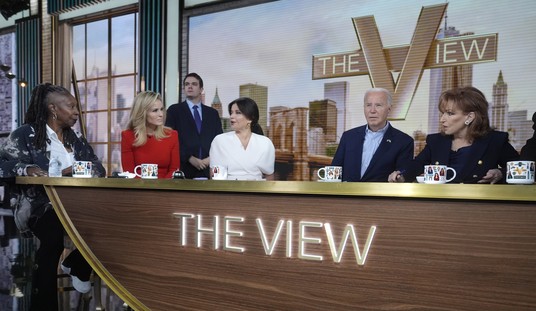Will the multilateral razzle-dazzle of the latest UN resolution on Libya spare President Barack Obama the rigors of the political-correctness police? Don’t bet on it.
Enforcement of the no-fly zone hasn’t even begun (at least not that I’ve seen reported). But already, Amnesty International is warning “all parties,” not just Libyan, but “any other forces that may become involved in the conflict” — that would include you, all you French and British and American types — to “respect fully the laws of war.” This includes putting “the protection of civilians above any other considerations.”
OK, sounds good. Sounds a lot like Obama himself, who said on Friday that there will be no use of force beyond the “well-defined goal” of “the protection of civilians in Libya.” I have no doubt that members of the U.S. military will strive to protect civilians, even if it puts their own lives and limbs at greater risk. In Iraq and Afghanistan, they have already been doing that for years.
But in practice, “protection of civilians” is not always the most easily defined of goals — not in a war zone where non-uniformed fighters on both sides mingle among the population, and not in a country still permeated with security goons long accustomed to doing their dirty work in the shadows. During the weeks of delay involved in the multilateral pow-wows preceding Thursday’s UN resolution authorizing restricted use of force (airstrikes, OK; but no ground troops), Gaddafi has had time to rally his forces, and deploy not only his mercenaries, but some substantial remnant of his security apparatus. He has not only tanks and aircraft, but goons on the ground. Technology may allow this UN coalition to engage in precision strikes — but knowing exactly who is being targeted is not always easy. In a perfect world, the UN-authorized coalition would deliver a series of long-distance or high altitude precision strikes, knock out Gaddafi’s planes and heavy weapons with no collateral damage to civilians, and the rebels would then –also with no collateral damage — roll up Gaddafi.
This is not a perfect world, and in Libya right now it’s a rough and tumultuous scene. There are awful decisions and trade-offs that will have to be made, and either way they will likely carry a terrible cost. Spare Gaddafi’s forces in the interest of protecting nearby civilians, and Gaddafi’s forces may go on to slaughter those civilians themselves. Hit Gaddafi’s forces, and nearby civilians may also die. Making snap decisions about this may be all the more difficult, given the UN constraints that there are to be no troops on the ground. There are reports that Libyan rebels are already helping with the choice of targets, but in any military operation, there’s that fog of war.
Gaddafi himself is ruthless enough to read Amnesty’s call, and items like it, as an open invitation to round up civilians for use as human shields. The terror-loving thugs who nest in the Arab world have a tradition of availing themselves of this tactic — from the late Yasser Arafat and Saddam Hussein, to Hamas in Gaza and Hezbollah in southern Lebanon. Given a Western press and human rights establishment that loves, above all, to criticize its own, what better way to confront the UN-authorized coalition than to present — once the impending strikes begin — innocent victims, arrayed for international publicity? What neater move for Gaddafi than to manipulate the international “other forces” now arrayed against him into defending themselves at home, and sniping at each other? If the aim of well-intentioned human rights groups is to limit collateral damage, this would be a good moment to refrain from sounding preemptive alarms about the “other forces” about to become involved in this conflict, and understand that these “other forces” too — some of them at greater risk than their ever eager human-rights critics — will be striving to protect the innocent.









Join the conversation as a VIP Member